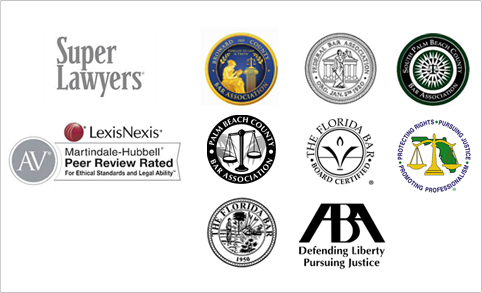



COVID-19 brings up many legal questions, often relating to the availability of insurance coverage for shutdowns and losses having to do with the interruption of normal business activities. However, one question which commercial litigators are getting asked repeatedly from their commercial clients is whether “force majeure” or “Act of God” clauses in their contracts will excuse their performance under their contracts generally, and particularly as relates to their commercial lease or rental obligations. The answer will almost always depend on the specific contract language, including the choice of law provisions, as well as the causal connection between COVID-19 and a party’s ostensible inability to perform its contractual obligations. Force majeure clauses are intended to allocate risk between contracting parties when an unanticipated event makes performance impossible or impracticable. Generically, Black’s Law Dictionary posits that a force majeure clause “is meant to protect the parties in the event that a contract cannot be performed due to causes which are outside the control of the parties and could not be avoided by exercise of due care.” Typically, a force majeure lease clause will contain a definitional list of specific events, often referred to as the “parade of horribles,” that will constitute a force majeure; however, some such clauses may be much more vague and generally include anything out of the parties’ control while others may define specific events and then also include broad “catch-all” language such as “for other reason whether of a like nature or not that is beyond the control of the party affected.” As a general proposition, in interpreting force majeure clauses, the more specific the clause the more limited will be its application, so that if the actual occurrence is not set forth in a long list of specific events it is less likely a court will find that the occurrence constituted an event of force majeure. Most clauses specify that they are only invoked when performance becomes impossible; some have more liberal language requiring only the hindrance or delay, or impracticability, of performance.
As might pertain specifically to COVID-19, many force majeure clauses specifically include “epidemic” or “pandemic” in their laundry list of qualifying events. Such an example would be the following: “the term ‘force majeure” as used herein shall include Acts of God, strikes, lockouts or other industrial disturbances, acts of the public enemy, wars, blockades, riots, epidemics, pandemics, lightning, earthquakes, explosions, accidents or repairs to machinery or pipes, delays of carriers, inability to obtain materials or rights of way on reasonable terms, acts of public authorities and/or governmental officials, or any other causes, whether or not of the same kind as enumerated herein, which are not within the control of a party and which by the exercise of due diligence such party is unable to overcome.” Any such expansively-drafted force majeure language should apply to COVID-19 since March 11, 2020, when the World Health Organization declared it a pandemic. Even in the case of less expansively-drafted force majeure clauses, which do not make specific reference to an epidemic or pandemic, COVID-19 should nevertheless qualify under most force majeure clauses as an “Act of God” and/or due to government-imposed travel bans, shutdowns and quarantines inasmuch as a global pandemic resulting in mass closures of all public events, schools and non-essential businesses is unlikely to be deemed as foreseeable as might a weather-related natural disaster such as a hurricane in Florida or an earthquake in California.
Unfortunately for many tenants, many commercial leases implement force majeure clauses which go beyond those which are set forth in commercial contracts generally, and contain added language which in some way, manner or form expressly excludes from the scope of their force majeure clauses any performance that can be satisfied by the payment of money – meaning that the tenant must continue to pay its rental obligations as and when they arise even though the leased premises may not be tenantable or operable as a consequence of an event, which may very well be definitionally included within the force majeure clause. In such an instance, tenant’s counsel might be well-served exploring other terms and conditions in the commercial lease. For example, many commercial leases contain provisions which allow for an abatement of rent, either full or partial, in instances where the leased premises and/or the building within which the leased premises situate are damaged (and rendered unusable) by a casualty. Depending either upon the broad or narrow language in the lease agreement which defines a “casualty,” a very credible argument can be advanced that a “casualty” has occurred where the leased premises and/or common areas of the building have become unusable to Tenant’s staff and business guests who are now under government orders to shelter in place and/or to remain under quarantine, or even to shut down as a “non-essential” business, as a consequence of the COVID-19 pandemic and the responsive government actions thereto. Although no actual structural damage has occurred to the real property in this example, it is notable that structural damage to real property is not necessarily a requirement to find that a property has suffered a “casualty” as a matter of law; proof that contamination or other relatively intangible conditions like bacteria, gases and fumes that “rendered the insured property temporarily or permanently unusable or uninhabitable may support a finding that the loss was a physical loss to the insured property.” See Mellin v. Northern Security Ins. Co., 167 N.E. 544, 549 (N.H. 2015)(finding that cat urine odor emanating from a neighboring condominium constituted a “physical loss”.); and, see Gregory Packaging, Inc. v. Travelers Prop. Cas. Co. of Am., 2014 U.S. Dist. LEXIS 165232, at *15-17 (D.N.J. Nov. 25, 2014) (“courts considering non-structural property damage claims have found that buildings rendered uninhabitable by dangerous gases or bacteria suffered direct physical loss or damage”).

Boca Raton
7777 Glades Road
Suite 400
Boca Raton, Florida 33434
Phone (561) 477-7800
Fax (561) 477-7722
Contact Us
Client Portal
Terms and Conditions
Privacy Policy
Web Accessibility
Contacting Shapiro, Blasi, Wasserman & Hermann, P.A. or any individual Shapiro, Blasi, Wasserman & Hermann, P.A. attorney or employee via the internet does not create an attorney-client relationship without our prior written agreement.
Please do not send us any information you regard as confidential unless and until we have agreed to a formal attorney-client relationship.
Information conveyed prior to establishing an attorney-client relationship is not privileged or confidential.
You should also be aware that information you convey to Shapiro, Blasi, Wasserman & Hermann, P.A. via the Internet may not be secure.
Copyright 2025 Shapiro, Blasi, Wasserman & Hermann, P.A. All Rights Reserved
Shapiro, Blasi, Wasserman & Hermann, P.A., with offices located in Boca Raton, Florida, is a full service law firm with practice areas including Commercial Litigation; Labor and Employment; Product Liability; Construction Litigation; Real Estate Transactions and Litigation; Business Transactions and Litigation; Family Law; Wills, Trusts and Estates; Healthcare; ADA Public Access Claims and Compliance; Bankruptcy and Creditor's Rights; Probate, Trust and Fiduciary Litigation; and Appellate Matters. We represent clients throughout Florida and nationwide.
We are a debt relief agency. We help people file for bankruptcy relief under the Bankruptcy Code.
Please review the privacy policy along with the terms and conditions of our site. Web Development by IWD Marketing